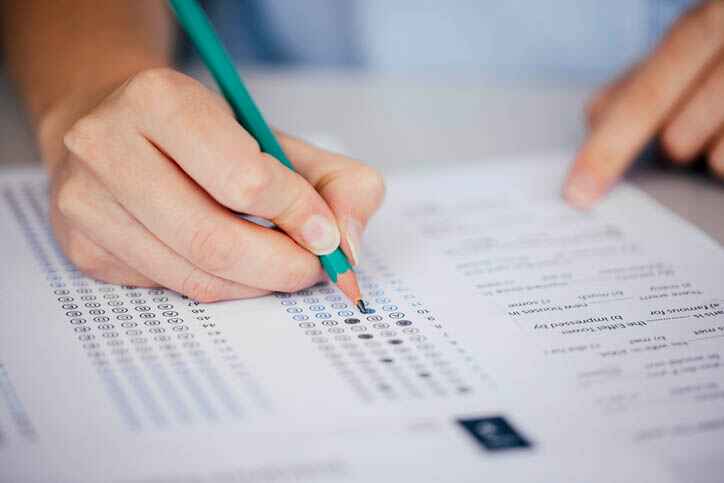Understanding its structure and components is essential for nursing students gearing up to take the Health Systems, Inc. (HESI) exam. A common question that often arises is: “How many questions are in the HESI exam?” In this article, we’ll break down the HESI exam’s question count, explain its sections, and provide insight into what to expect.
What is the HESI exam?
The HESI exam is a comprehensive assessment designed to evaluate nursing students’ knowledge and skills across various subjects. It’s an essential milestone on the journey toward becoming a licensed nurse. Each section of the exam contains 25 to 55 questions.
Note that many nursing programs don’t require students to take the physics section, reducing the questions you are likely to take closer to 300. Each section of the exam contains 25 to 50 questions. All science sections have 25 questions, while English and Math sections have 50 questions each. The reading comprehension section is a little different and has 47 questions.
The exam covers various nursing-related topics, including anatomy, physiology, pharmacology, and critical thinking. It serves as a tool to gauge a student’s preparedness for real-world nursing challenges.

How can Naxlex help you pass the HESI exam?
Naxlex is the most dedicated and trusted nursing resource for students. We help you pass your HESI exam on your first try with our practice exam and tailored preparation materials. We also provide a live tutoring option in your weak areas, guaranteeing a pass on your first try or your money back. Sign up for our premium package today!
Sections of the HESI exam
The HESI exam is divided into sections, each targeting different nursing knowledge and skills. Let’s take a closer look at some of the typical sections you might encounter in the HESI exam:
Mathematics
This section assesses your mathematical skills and ability to apply math concepts to real-world nursing scenarios. You might encounter dosage calculations, conversions, and other math-related questions.
Anatomy and Physiology
This section tests your understanding of the human body’s structure and functions. Questions could cover body systems, cells, tissues, and organ functions.
Pharmacology
Pharmacology focuses on medications, their classifications, actions, and side effects. This section assesses your knowledge of drug administration and how various medications interact with the body.
Critical Thinking
Critical thinking is a core skill for nurses. This section presents scenarios where you must decide based on the information provided. It evaluates your ability to prioritize care, identify potential complications, and apply nursing interventions.
Reading Comprehension
Nursing involves a lot of reading and understanding complex medical information. This section assesses your ability to comprehend and analyze written passages related to nursing topics.
Vocabulary
The vocabulary section measures your grasp of nursing-related terminology. It includes questions about medical terms, abbreviations, and their meanings. These questions test whether students can communicate with other medical practitioners.
Question Formats
The questions in the HESI exam come in various formats to assess cognitive levels and skills. Some common question formats include:
- Multiple Choice: These are questions with multiple answer choices, where you must select the most appropriate option.
- Fill-in-the-Blank: This format requires you to complete a sentence or provide a numerical answer.
- Select-All-That-Apply: These questions have multiple correct answers, and you need to select all the options that apply.
- True/False: These questions require determining whether a statement is true or false based on the information provided.
- Matching: Matching questions ask you to pair items from two columns that relate to each other.
Preparation and Strategy
Given the varying question formats and subject areas, adequate preparation is crucial for success in the HESI exam. Here are some strategies to help you navigate the exam:
Start Early: Begin your preparation well in advance. Cramming won’t allow you to cover all the topics thoroughly.
Use Study Guides: Many resources, including study guides and practice books, are available to help you prepare for the HESI exam. These materials often include practice questions and explanations.
Practice Regularly: Practice questions from various sections to familiarize yourself with the different question formats and subject matter.
Review Weak Areas: Identify the topics where you need more practice and focus on improving your understanding.
Manage Your Time: During the exam, time management is critical. Some questions may take longer to answer, so allocate your time wisely.
Stay Calm: On exam day, stay calm and focused. Read each question carefully and avoid second-guessing yourself excessively.
Need help to pass your HESI exam?
Do you need help with studying for your HESI exam? Don’t worry because Naxlex is here to help you out. We have lots of interactive material to help you study for your exam, including videos, quizzes, and study guides. Our practice questions are similar to the official exam, guaranteeing a pass on your first try. Try our premium package here!
Conclusion: How Many Questions Are In The HESI Exam?
The number of questions in the HESI exam typically ranges from 160 to 170, spread across various sections. Understanding the exam’s structure, question formats, and subject areas will help you prepare effectively.
Remember that the HESI exam is an opportunity to showcase your nursing knowledge and skills, so approach it with confidence and a well-prepared mindset. By studying consistently, practicing diligently, and managing your time wisely, you’ll be better equipped to tackle the HESI exam and step closer to your nursing aspirations.


